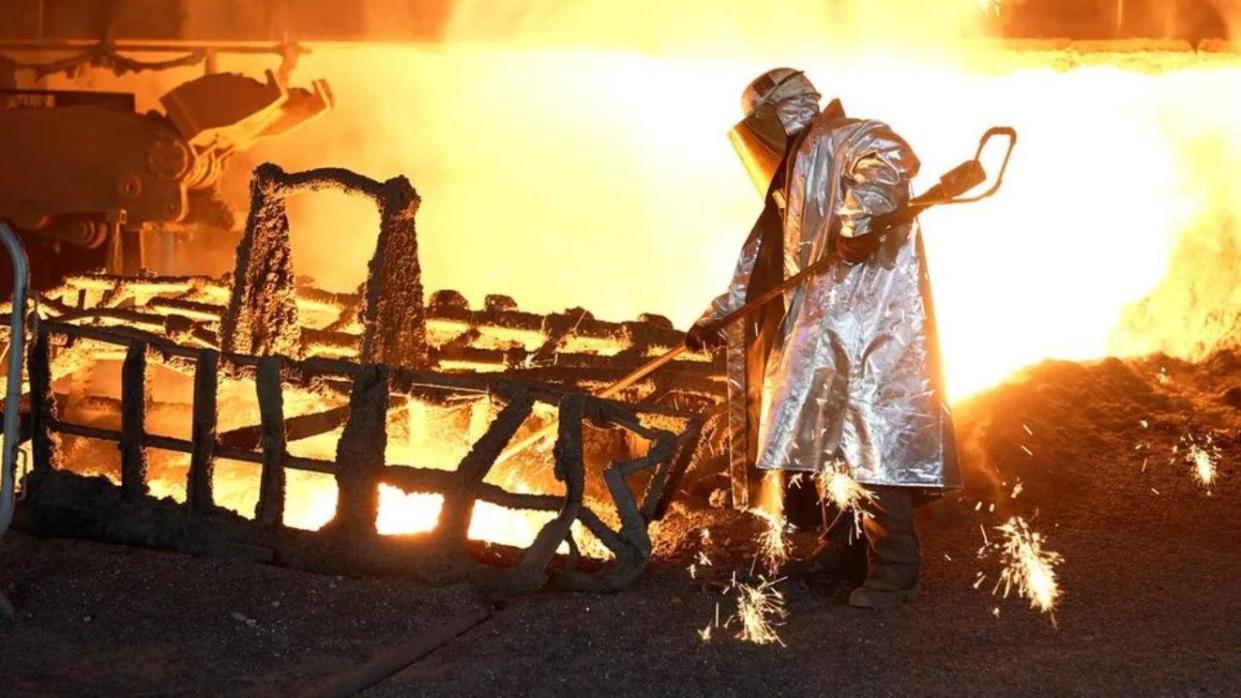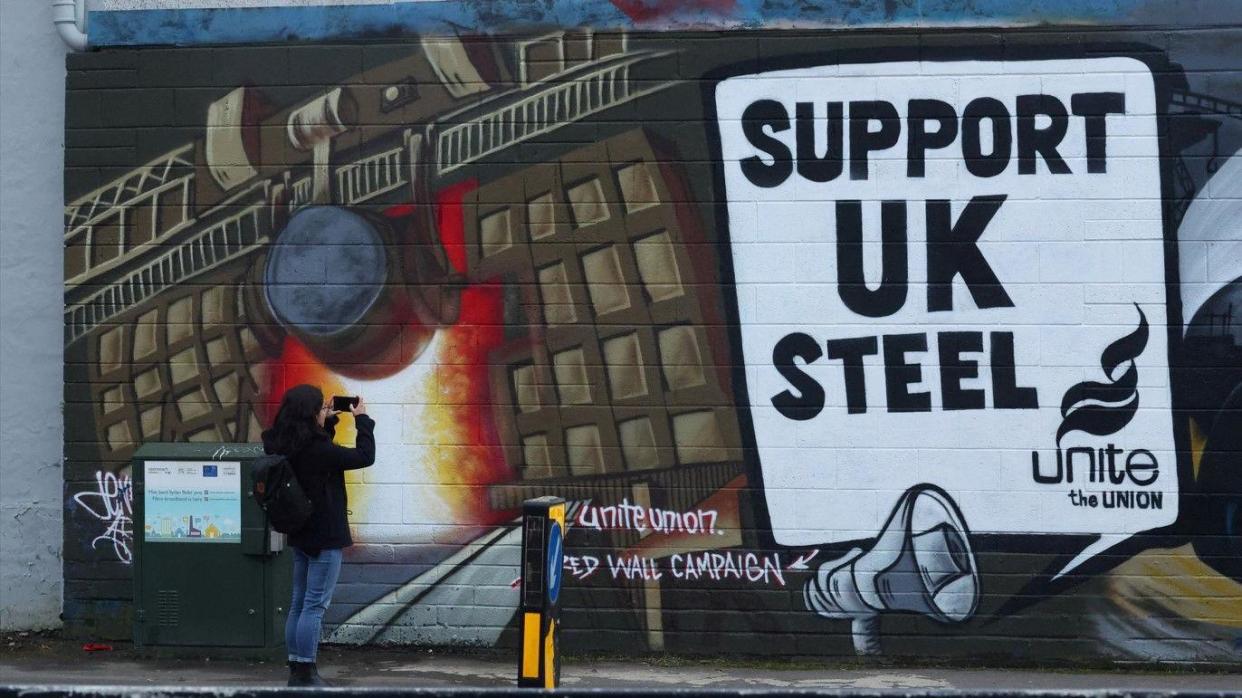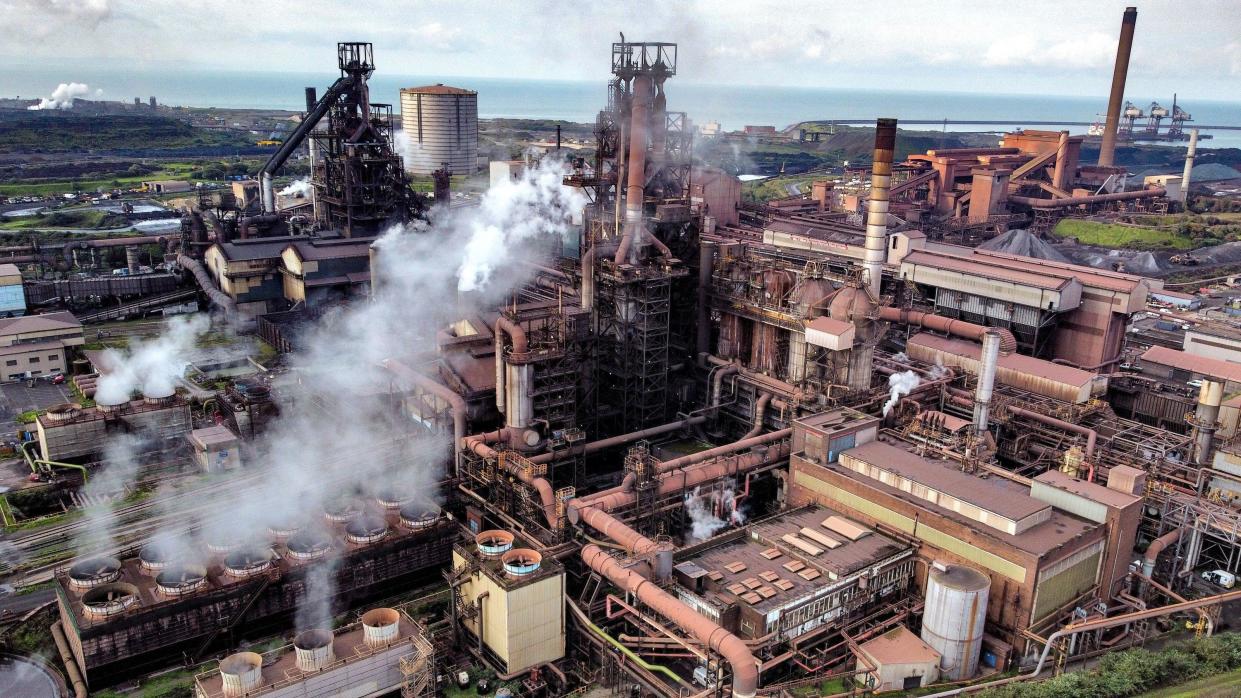Over 2,000 workers apply for Tata Steel redundancy

Over 2,000 workers have applied for voluntary redundancy at Tata Steel’s south Wales sites.
The majority are based in Port Talbot, where the company plans to close its second blast furnace in a month’s time.
Tata Steel said it had begun assessing whether those who had expressed an interest in taking redundancy were in roles which could be closed.
The first of 2,800 workers to lose their jobs are expected to leave the business within weeks.
Unions have pledged to ballot their members on whether to accept the redundancy deal, with the first of 2,800 workers expected to leave the company within weeks.
The redundancy terms are said to be the company’s best ever offer to staff.
Tata Steel will give employees 2.8 weeks’ salary for every year of service, up to a maximum of 25 years.
They will receive a guaranteed minimum payment of £15,000 and an attendance-related payment of £5,000.
A Tata spokesperson said: “We are currently working through how people’s aspirations may align with the future organisational structure requirements.
“Whilst we have made great efforts to put together an employee support package that will help many of those people affected to transition out of the business, it is also vital that we retain our core knowledge, skill base and experience through this most challenging of times.”

The three unions representing Tata Steel workers – Community, Unite and the GMB – have previously agreed to give members a vote on whether to accept the redundancy deal. The company said it expected the vote to happen “shortly”.
Union sources expect the deal would be widely supported by staff, following months of discussion with the company.
Tata Steel UK’s restructure will see a total of 2,800 jobs lost across the UK. Around 300 of those will go at Llanwern near Newport in three years’ time, with that cohort of workers yet to be issued any formal redundancy notice.
Of the 2,500 whose jobs are under threat this year, around 300 to 400 are believed to be at risk of compulsory redundancy. The numbers are likely to fluctuate as the company and unions work through the expressions of interest in voluntary redundancy and seek to move those at risk to other parts of the business.

Workers expect the second of two blast furnaces in Port Talbot to be switched off on 28 September, which will end the production of steel from iron ore in south Wales.
Tata plans to build a £1.25bn electric arc furnace, which produces steel by melting scrap metal.
The UK government is expected to reach a final agreement with Tata Steel over £500m in funding for its electric arc furnace at the beginning of September.
Labour also committed a further £2.5bn towards the future of steelmaking in the UK, and unions have called on the government to commit some of that funding to other investments in south Wales.
Adding a plate mill or similar technology to the Port Talbot operation, which could produce steel plate for floating offshore wind turbines, is under discussion.
The Tata Steel spokesperson said the company continued to “work closely with the UK government to finalise discussions” around its investment in steelmaking.
They said the existing commitment to end blast furnace production and invest in greener technology “would reduce our carbon emissions by at least five million tonnes a year and support UK steel sovereignty.”
They added: “We are also working hard with our trades union colleagues to conclude a memorandum of understanding on a range of issues regarding the restructuring of the UK business and our transition to green steel. We hope that our Trades Union partners will be putting this to their members shortly.”






